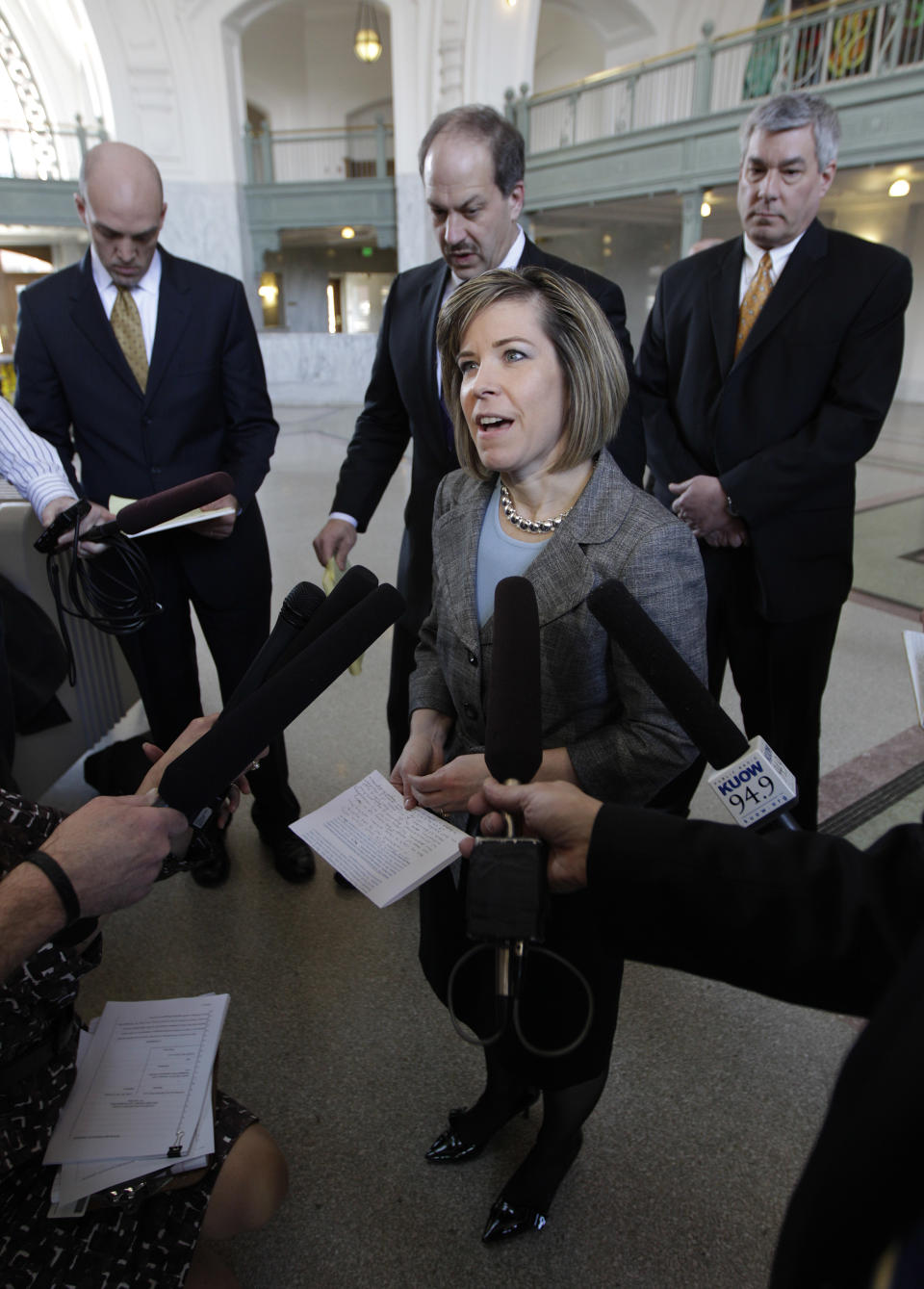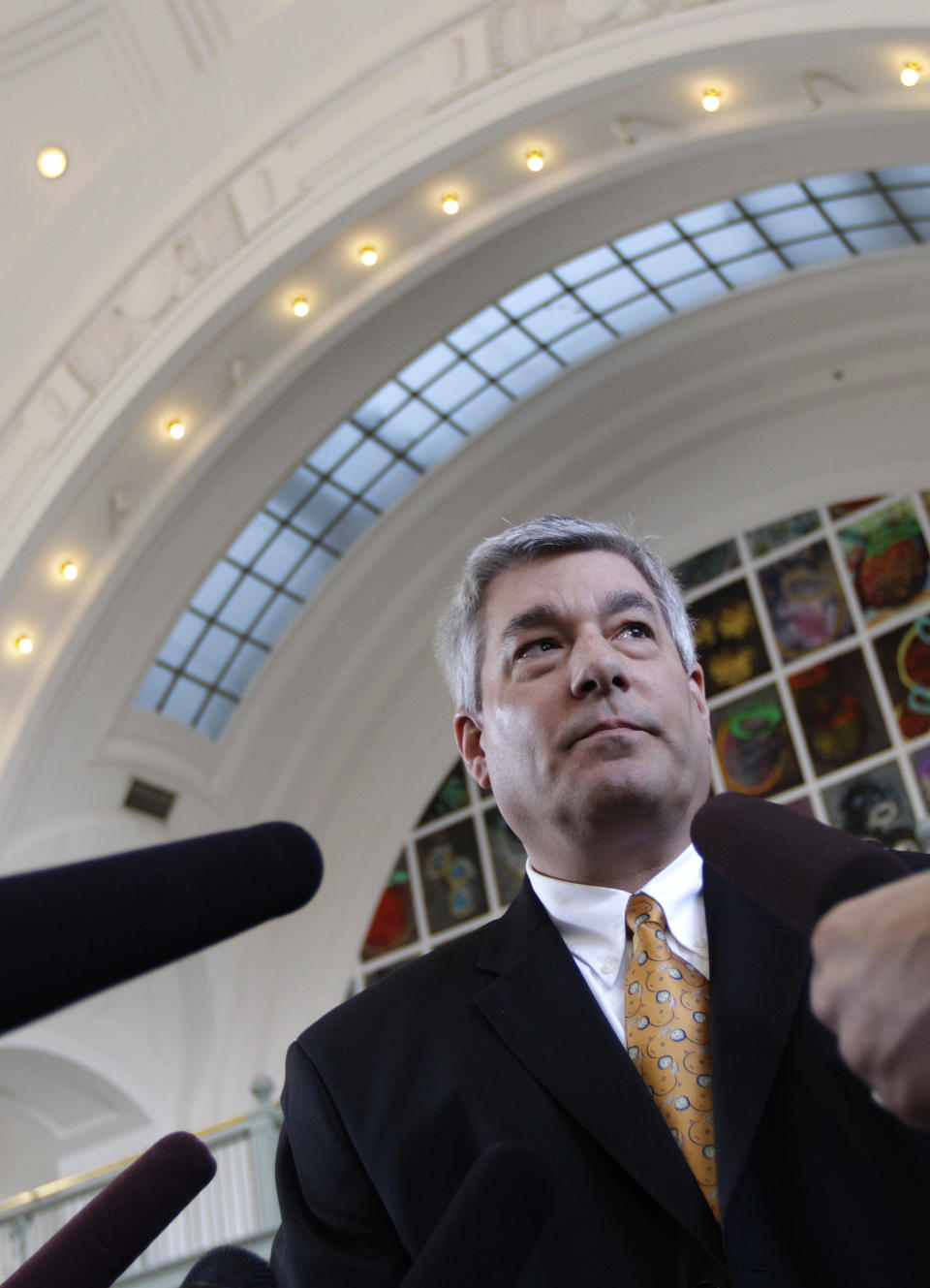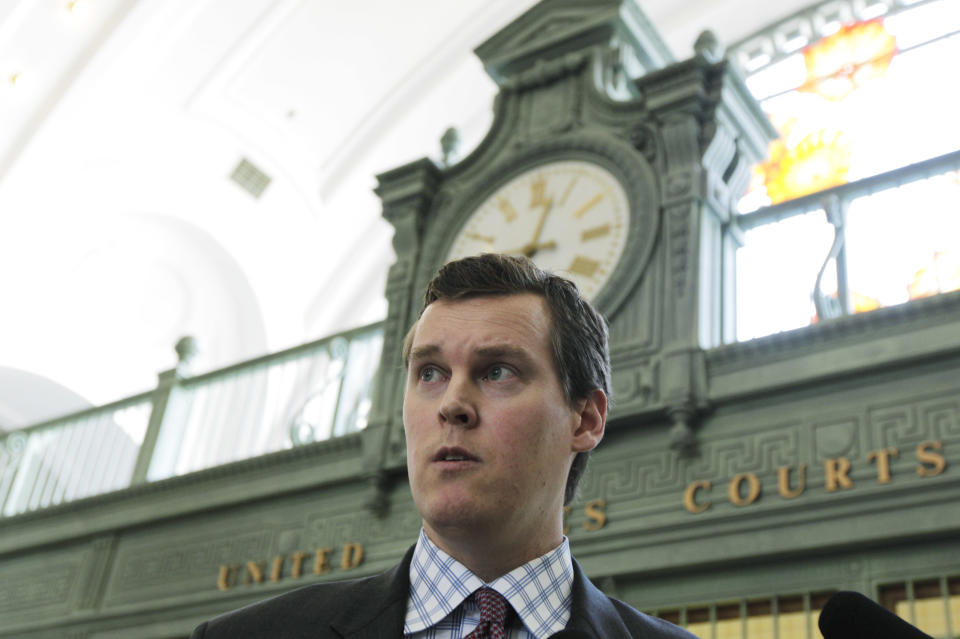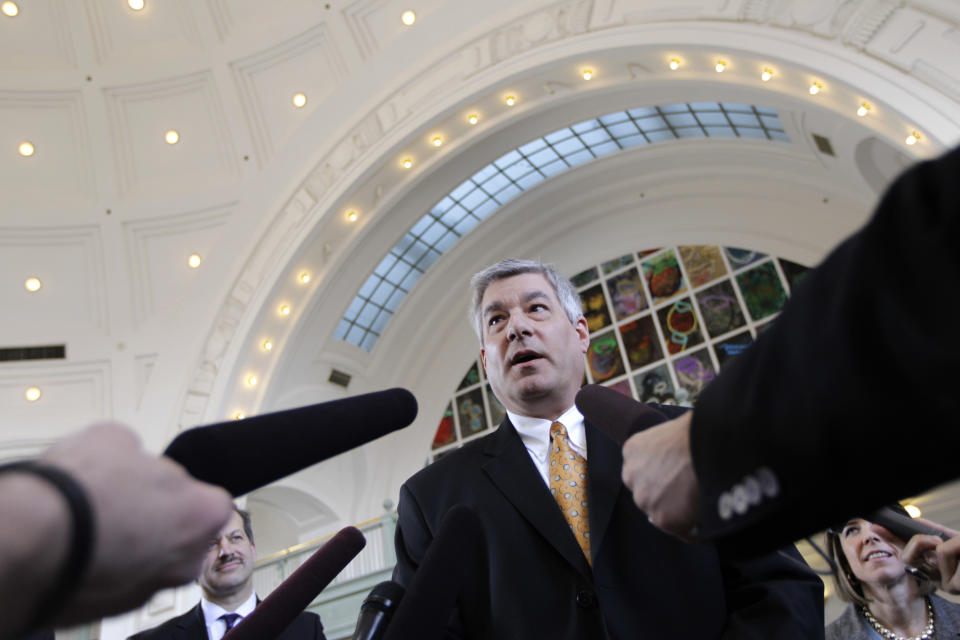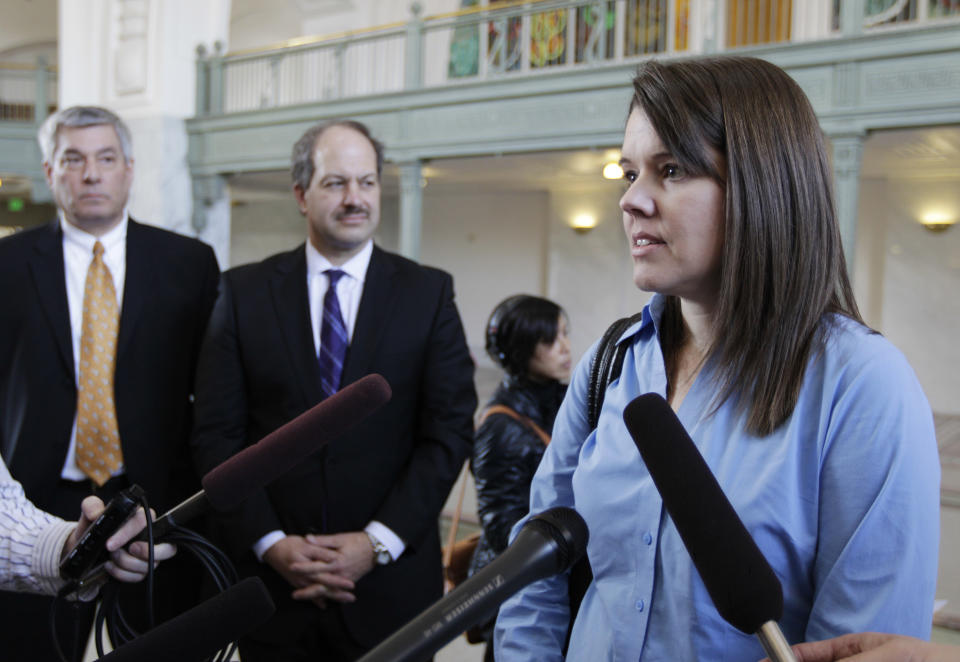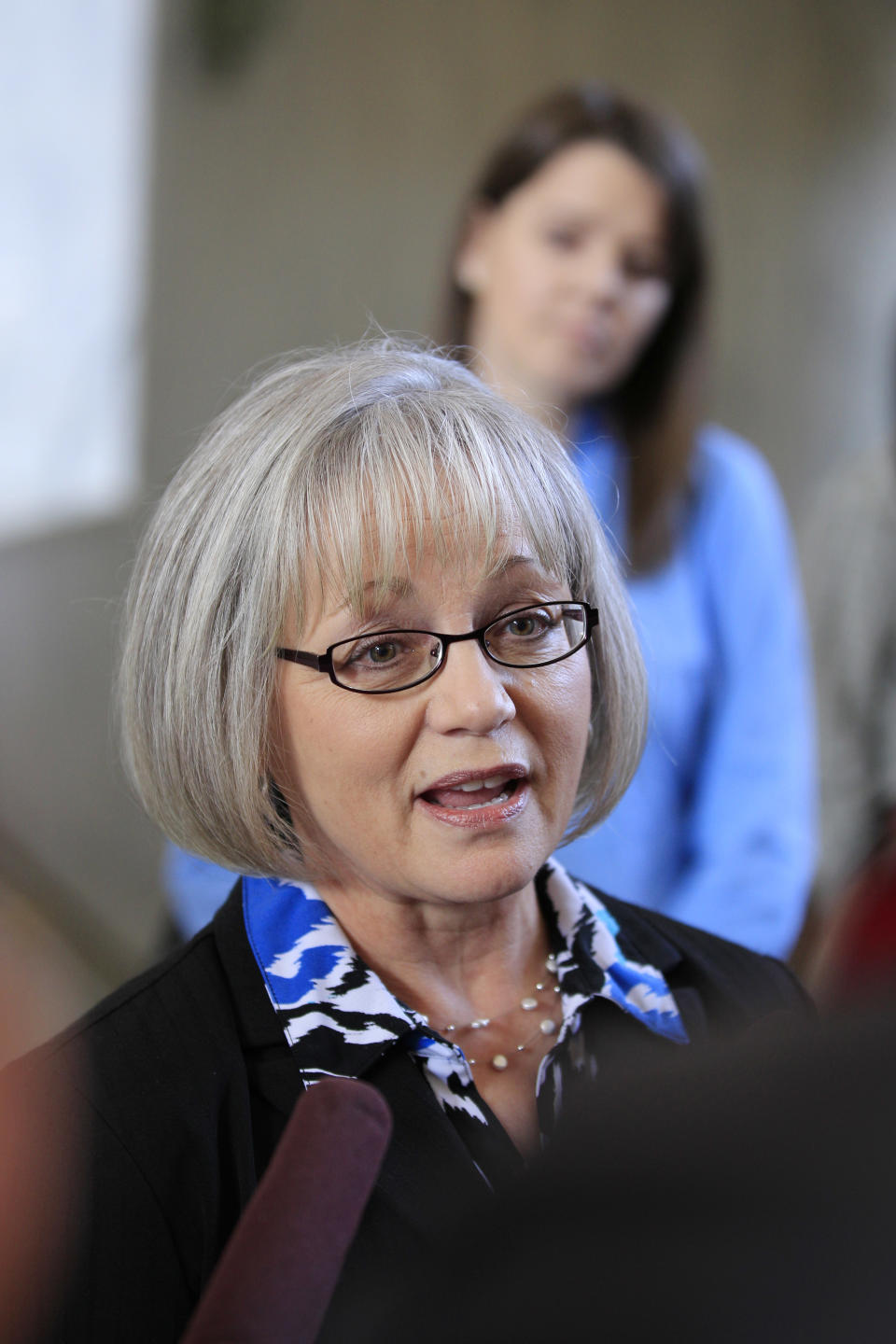Judge says Wash. can't make pharmacies sell Plan B
TACOMA, Wash. (AP) — Washington state cannot force pharmacies to sell Plan B or other emergency contraceptives, a federal judge ruled Wednesday, saying the state's true goal was to suppress religious objections by druggists — not to promote timely access to the medicines for people who need them.
U.S. District Judge Ronald Leighton sided with a pharmacy and two pharmacists who said state rules requiring them to dispense Plan B violate their constitutional rights to freedom of religion because such drugs can destroy a fertilized egg, which they consider equal to abortion.
Washington's rules require that pharmacies stock and dispense drugs for which there is a demand. The state adopted the dispensing regulations in 2007, following reports that some women had been denied access to Plan B, which has a high dose of medicine found in birth-control pills and is effective if a woman takes it within 72 hours of unprotected sex.
State lawyers argued that the requirements are legal because they apply neutrally to all medicines and pharmacies, and because they promote a government interest — the timely delivery of medicine, including Plan B, which becomes less effective as time passes.
But Leighton ruled that the state allows all sorts of business exemptions to the rules. Pharmacies can decline to stock a drug, such as certain painkillers, if it's likely to increase the risk of theft, or if it requires an inordinate amount of paperwork, or if the drug is temporarily unavailable from suppliers, among other reasons.
"The most compelling evidence that the rules target religious conduct is the fact the rules contain numerous secular exemptions," the judge said. "In sum, the rules exempt pharmacies and pharmacists from stocking and delivering lawfully prescribed drugs for an almost unlimited variety of secular reasons, but fail to provide exemptions for reasons of conscience."
The decision comes as contraception has been debated in political and health care circles around the nation. A controversy erupted this month when religious groups protested a new federal rule that required church-affiliated universities, hospitals and nonprofits to include birth control without co-pays or premiums in their insurance plans.
The outcry prompted President Barack Obama to change the rule to shift the burden from religious organizations to insurance companies. Lawmakers in a few conservative states have taken up the fight with proposals that serve as direct challenges to Obama's ruling.
Leighton, in his decision Wednesday, did not strike down Washington's rules, but said simply that the way they were applied to the plaintiffs in this case was unconstitutional.
The state remains free to try to enforce the law against other pharmacies that violated the stocking and dispensing rules, whether for Plan B or other drugs; it remains unclear whether courts would reach a similar conclusion if pharmacies objected to selling other drugs for religious reasons.
"I remain concerned about the impacts on patients if pharmacies are allowed to refuse to dispense lawfully prescribed or lawful medications to patients," said Gov. Chris Gregoire, who insisted on the dispensing rule's adoption. "I am especially concerned about those living in rural areas, many of whom may have few alternatives and could suffer lengthy delays in receiving medication or go without entirely."
The judge, an appointee of President George W. Bush, first blocked the state's dispensing rule in 2007. But a 9th U.S. Circuit Court of Appeals panel overruled him, saying the rules did not target religious conduct. It sent the case back to Leighton, who held an 11-day trial before reaffirming his original decision.
Further appeals were expected, both from the state and from groups that intervened on the state's behalf. Before taking more than an hour to read his 48-page opinion in court, Leighton acknowledged that he crafted it for the benefit of a "skeptical" appeals court.
The interveners included women who were denied timely access to Plan B when they needed it — one of whom cut short a vacation in central Washington to return home to Bellingham, where she knew she could obtain Plan B from her regular pharmacy — as well as HIV patients, who argued that if druggists could refuse to dispense Plan B for religious reasons, some might also refuse to dispense time-sensitive HIV medications.
"The question really is whether the patient's rights come first or the pharmacist's rights come first," said Andrew Greene, a lawyer for the interveners.
Assistant Attorney General Rene Tomisser said Leighton's ruling was "more detailed" but made the same mistake he made in 2007.
Margo Thelen, of Woodland, one of the pharmacists who sued over the rules, said she had to leave one job because she refused to dispense Plan B — and now she can continue working at her new job without fear of being fired.
"Speak to anyone who shops in a pharmacy," she said. "Their product isn't always available."
Two Supreme Court cases guide judges in determining whether laws that infringe upon the free exercise of religion are legal.
In one, the court held that the state of Oregon could outlaw the use of the hallucinogenic peyote for everyone, even though some groups might use it in religious conduct.
In the other, the court held that a city in Florida could not outlaw animal sacrifices for religious purposes, while allowing the slaughter of animals for food, hunting and pest eradication.
Leighton said Washington's rules are akin to the Florida case. Though they appear to be neutral by their plain language, the state allows pharmacies not to stock or sell drugs for various business reasons, he said.
___
Johnson can be reached at https://twitter.com/GeneAPseattle
